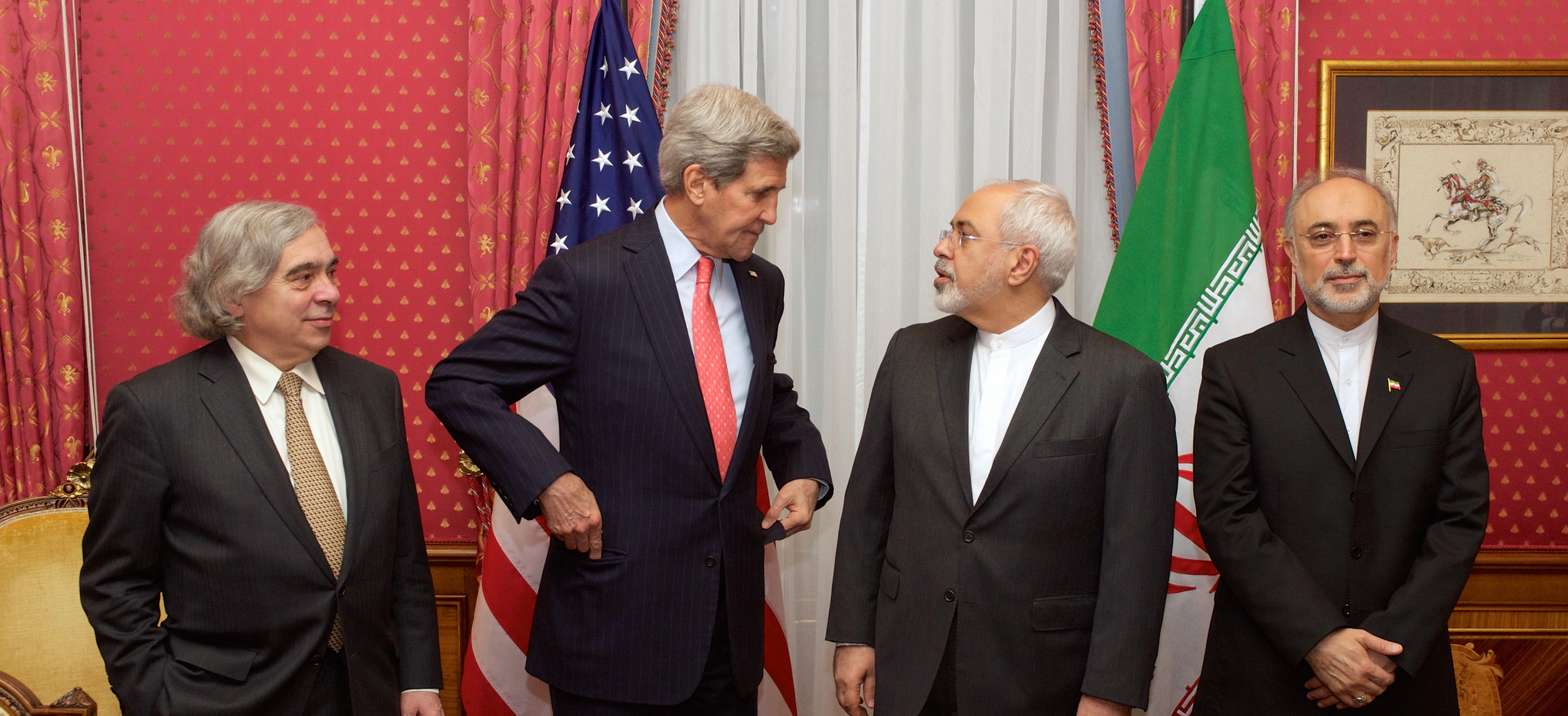
October 11, 2017
CNAS Press Note: President Trump’s Plan Not to Certify Iranian Compliance with JCPOA
Washington, October 11 – With President Trump slated to give a speech in which he is expected to say he will not certify Iran’s compliance with the 2015 Joint Comprehensive Plan of Action (JCPOA), the Center for a New American Security (CNAS) Energy, Economics, and Security Program Director Elizabeth Rosenberg and Middle East Security Program Director Ilan Goldenberg have written a new press note, “President Trump’s Plan Not to Certify Iranian Compliance with JCPOA.” In the piece, they lay out the options Congress and, ultimately, the president have for the JCPOA and what the ramifications of pulling out of the deal would be.
Please find the full press note below:
This week President Trump is slated to give a policy speech on Iran in which he is expected to state that he will not certify to Congress that Iran is in compliance with the 2015 nuclear agreement – the Joint Comprehensive Plan of Action (JCPOA). Failing to certify will not in and of itself result in a reimposition of nuclear sanctions suspended under the deal, which would constitute a U.S. violation of the agreement. Instead, it will initiate a process by which Congress will, over the next 60 days, have the opportunity to reimpose the sanctions without requiring a filibuster-proof majority.
Reports suggest that the administration does not seek to imminently end the agreement. Indeed, it could have done so, and could do so in the future, without congressional action by reimposing sanctions. Instead, the administration appears to want to use the threat of walking away as leverage to try to get P5+1 partners (UK, France, Germany, Russia, and China) to come on board with terms for a better agreement. Specifically, the administration seeks to address concerns about nuclear provisions in the JCPOA that “sunset” in a number of years and to deal with the question of Iran’s destabilizing regional behavior. This is a very risky gambit that is unlikely to work.
First, it requires a highly coordinated approach with Congress, which the administration has thus failed to execute on other issues. There is a danger that Congress moves ahead on its own and kills the nuclear agreement, or that it simply refuses to act at all, pushing the issue back to the executive branch and forcing the president to decide to keep waiving sanctions or reimpose them to kill the deal. The executive branch is due to renew key nuclear sanctions waivers in January, which sets up the next few months to be a time of uncertainty for Congress and the president on Iran policy.
Second, the United States’ P5+1 partners are unlikely to acquiesce to this approach. European partners have offered to discuss with the administration ways to improve the nuclear agreement with an add-on deal, but only if the current one stays in place. Meanwhile, the president’s approach is a non-starter for Russia and China. The reality is that the International Atomic Energy Agency and all U.S. partners believe that Iran continues to abide by its commitments in the JCPOA. Indeed, even many of President Trump’s security advisors, including Jim Mattis and Rex Tillerson, have acknowledged that Iran is in compliance. Spiking a deal that U.S. partners believe is working will diminish both U.S. credibility and the willingness of angry, skeptical foreign counterparts to follow U.S. leadership on Iran, and other, security issues in the future.
Finally, there is the question of the Iranian response. Iran seems likely to try and take the diplomatic high ground by staying in the agreement and isolating the United States internationally. However, there will also be domestic pressure in Iran to respond, which could lead it to retaliate with steps that begin to test the United States and the international community. Iran’s leadership has increasingly threatened this response in recent days and weeks.
The ultimate future for the Iran nuclear deal, and for U.S. policy in the region, is not clear. However, for the immediate future the focus on whether or not the JCPOA survives will shift to the U.S. Congress. The look further forward is dim for the advancement of U.S. interests: The Trump administration appears to be pursuing a strategy that is unlikely to lead to any real near-term gains and over time appears most likely to destabilize and endanger an agreement that for the past two years has successfully contained Iran’s nuclear program.
Rosenberg and Goldenberg are available for interviews. To arrange one, please contact Neal Urwitz at 202-457-9409 or nurwitz@cnas.org.

